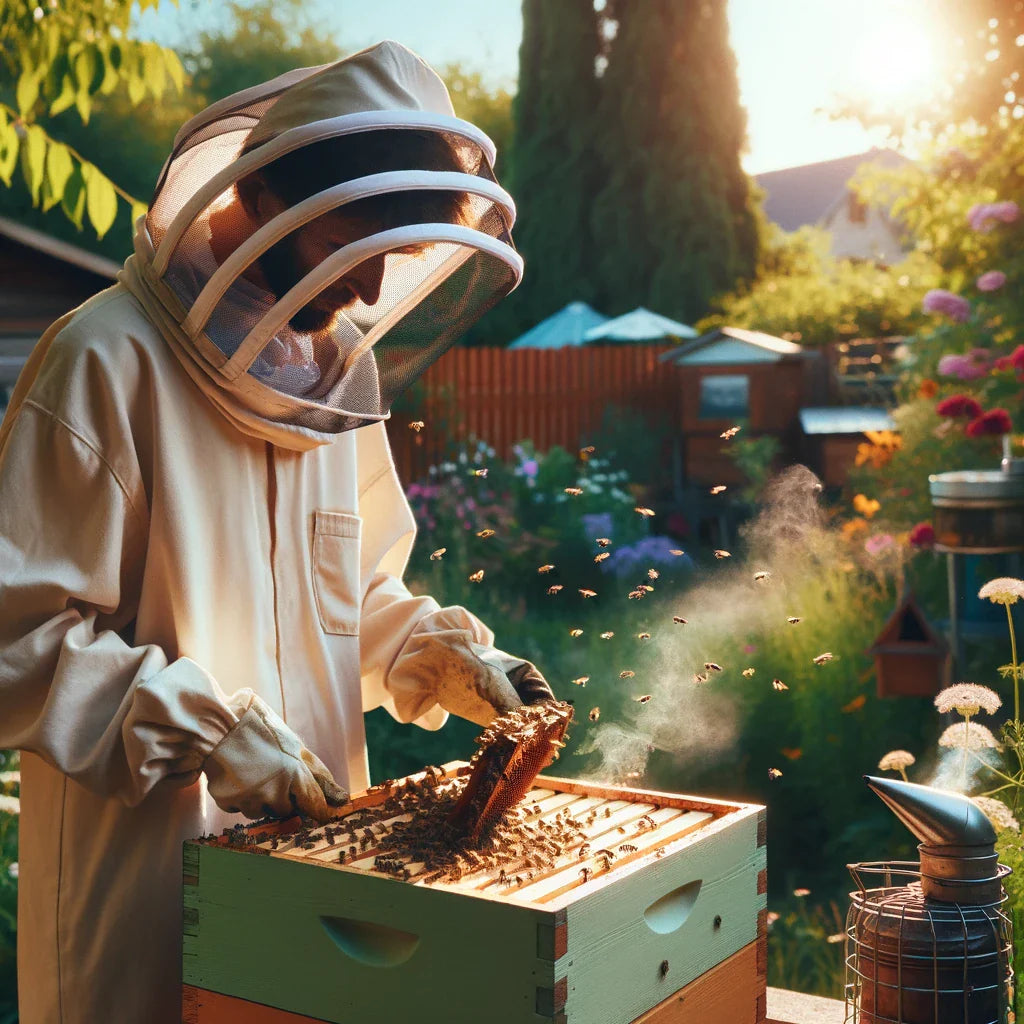
The Joy's and Challenges of Being a Hobbyist Beekeeper
Share
The Joys and Challenges of Being a Hobbyist Beekeeper
Beekeeping has long been a rewarding and fascinating pursuit, offering a unique connection to nature and a chance to contribute to the environment. Whether you are motivated by the allure of fresh honey, a desire to boost pollination in your garden, or simply a love of bees, becoming a hobbyist beekeeper can be both fulfilling and challenging. This article explores what it means to be a hobbyist beekeeper, the benefits, common challenges, and tips for getting started.
What is a Hobbyist Beekeeper?
A hobbyist beekeeper typically manages a small number of hives, usually fewer than ten, primarily for personal enjoyment rather than commercial production. Unlike professional beekeepers who operate large-scale apiaries, hobbyists treat beekeeping as a passion project, a way to enjoy the rewards of working with bees and producing honey on a smaller scale.
Benefits of Hobbyist Beekeeping
-
Pollination for Gardens and Crops
Keeping bees improves the productivity of flowers, fruits, and vegetables in your garden. Bees are vital pollinators, and their presence boosts biodiversity in the local environment. -
Fresh, Natural Honey
Hobbyist beekeepers enjoy the satisfaction of harvesting their own honey, free from additives and commercially processed sugars. It’s a sweet reward that reflects the unique floral sources around the hive. -
Beeswax and Other Hive Products
In addition to honey, hobbyists can harvest beeswax, propolis, and royal jelly for making candles, lip balms, or health supplements. -
Learning and Personal Growth
Beekeeping offers endless learning opportunities. Understanding bee biology, hive management, and seasonal challenges provides an intellectually rewarding experience. -
Contributing to Bee Conservation
With declining wild bee populations, keeping managed honey bees supports local ecosystems and raises awareness of the importance of pollinators.
Challenges of Hobbyist Beekeeping
-
Varroa Mites and Pests
Managing varroa mite infestations is one of the most significant challenges for beekeepers. Hobbyists must learn about mite treatments and integrated pest management strategies. -
Hive Management and Seasonal Care
Bees require care throughout the year, from providing supplemental feed in early spring and late fall to preventing swarming in the summer. -
Weather-Related Risks
Cold winters, rainy springs, or drought conditions can impact hive health and honey production. Proper preparation and management are necessary to mitigate these effects. -
Legal Considerations and Community Relations
Local regulations may require permits, and neighbors must be considered when placing hives to avoid conflicts or fears about bee stings.
Tips for Starting as a Hobbyist Beekeeper
-
Take a Beekeeping Course
Education is key to success. Many local beekeeping associations offer beginner courses that cover hive setup, pest management, and honey harvesting. -
Join a Local Beekeeping Club
Networking with experienced beekeepers provides valuable insights and mentorship, plus access to resources like equipment sharing and swarm alerts. -
Start Small
Begin with one or two hives to learn the basics before expanding. Managing a few hives allows you to gain hands-on experience without feeling overwhelmed. -
Invest in Quality Equipment
Essential items include a beehive (Langstroth, top bar, or other types), a bee suit or jacket, gloves, a smoker, and hive tools. -
Monitor Your Bees Regularly
Conduct routine inspections to check for healthy brood patterns, honey stores, and signs of disease or pests.
The Community of Hobbyist Beekeepers
The beekeeping community is welcoming and supportive. Hobbyists often participate in local fairs, honey competitions, and conservation initiatives. Sharing knowledge, exchanging ideas, and celebrating the joys of beekeeping fosters a sense of camaraderie and deepens the connection to the craft.
Conclusion
Becoming a hobbyist beekeeper is a delightful way to engage with nature, enjoy the fruits of your labor, and make a positive impact on the environment. While it comes with challenges, the rewards—both tangible and intangible—make it a truly enriching endeavor. With preparation, education, and passion, you’ll find beekeeping to be a hobby that buzzes with endless opportunities for growth and joy.
